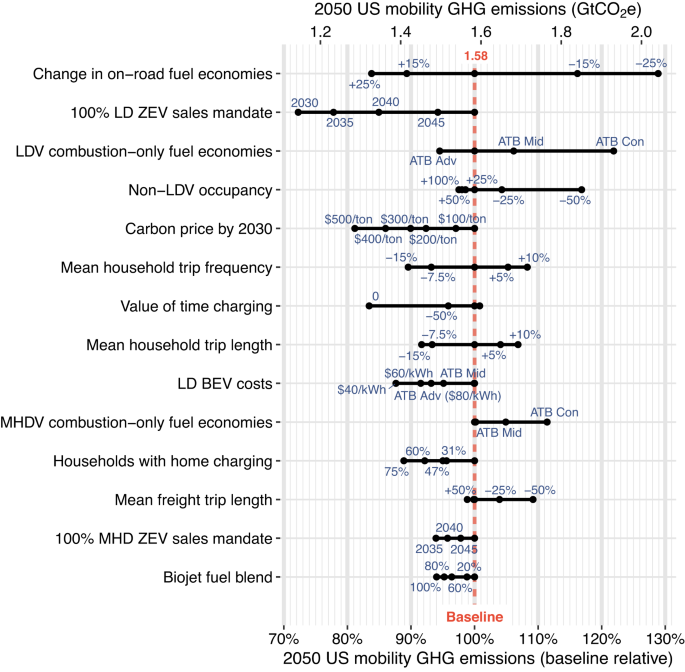2023-11-01 米国国立再生可能エネルギー研究所(NREL)
◆NRELの研究者は、輸送が温室効果ガスの最大発生源であることを考慮し、旅客と貨物輸送の脱炭化手順に関する数千のコンピューターシミュレーションを実施し、ゼロエミッション車両の急速な採用が重要であると結論づけました。その結果、2050年までに温室効果ガス排出量を削減できる最大の可能性は、2019年と比較して89%の削減であり、2005年の基準に対して85%の削減に相当することが示されました。
<関連情報>
- https://www.nrel.gov/news/press/2023/deep-decarbonization-scenarios-reveal-importance-of-zero-emission-vehicles.html
- https://www.nature.com/articles/s41467-023-42483-0
米国の旅客・貨物モビリティの脱炭素化の道筋を探る Exploring decarbonization pathways for USA passenger and freight mobility
Christopher Hoehne,Matteo Muratori,Paige Jadun,Brian Bush,Arthur Yip,Catherine Ledna,Laura Vimmerstedt,Kara Podkaminer & Ookie Ma
Nature Communications Published:30 October 2023
DOI:https://doi.org/10.1038/s41467-023-42483-0

Abstract
Passenger and freight travel account for 28% of U.S. greenhouse gas (GHG) emissions today. We explore pathways to reduce transportation emissions using NREL’s TEMPO model under bounding assumptions on future travel behavior, technology advancement, and policies. Results show diverse routes to 80% or more well-to-wheel GHG reductions by 2050. Rapid adoption of zero-emission vehicles coupled with a clean electric grid is essential for deep decarbonization; in the median scenario, zero-emission vehicle sales reach 89% for passenger light-duty and 69% for freight trucks by 2030 and 100% sales for both by 2040. Up to 3,000 terawatt-hours of electricity could be needed in 2050 to power plug-in electric vehicles. Increased sustainable biofuel usage is also essential for decarbonizing aviation (10–42 billion gallons needed in 2050) and to support legacy vehicles during the transition. Managing travel demand growth can ease this transition by reducing the need for clean electricity and sustainable fuels.



